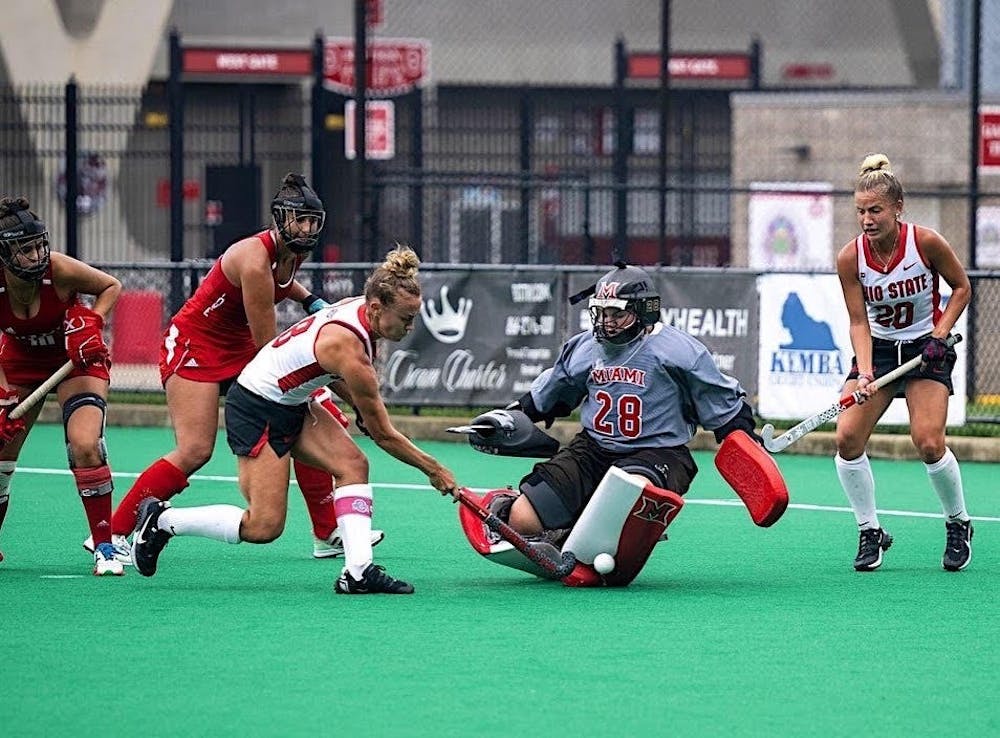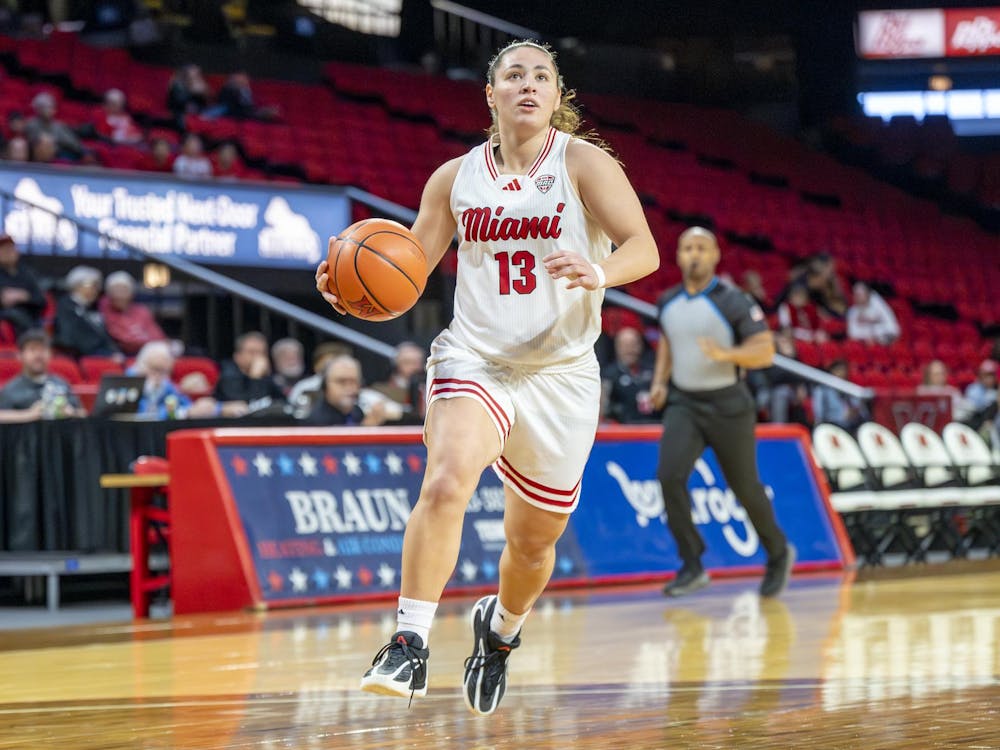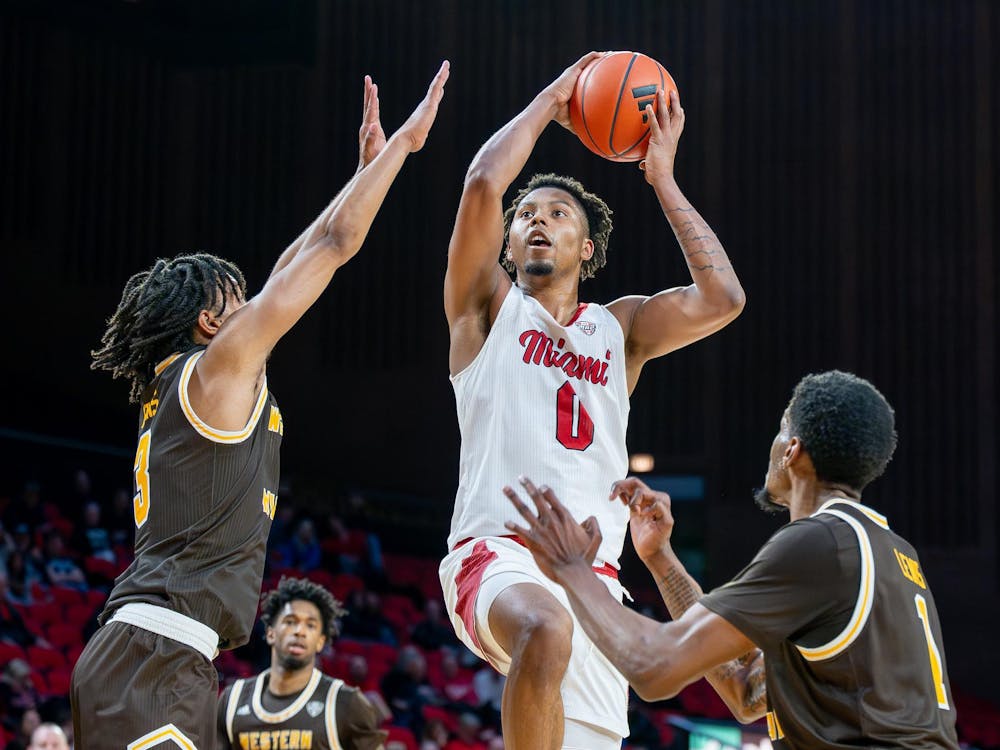When Jennie Gilbert played volleyball for Miami University in 1982, the women’s team played at Withrow Court — a building so old it no longer exists — because Millett was reserved for men’s sports.
While the men’s basketball team traveled on charter buses to away games, Gilbert and her teammates drove themselves in vans to their competitions. If she signed up for a course, the professor was allowed to decline her enrollment solely because of her gender.
Title IX, the landmark legislation that outlawed sex-based discrimination in educational programs and activities, was signed into law in 1972, but it took decades of slow yet steady progress to create the more level playing field that exists now.
The successes of Title IX
Gilbert, now the associate athletic director and Title IX coordinator at Miami, is glad about the improvements that have been made in the bill’s 50 years.
“Compare that to where we are now, [there’s] significant differences,” Gilbert said. “In fact, if you talk to our current women athletes, they have no idea that such inequities even existed.”
Gilbert said although great strides have been made, much of the still present inequality stems from differences in market and television value, largely driven by football.
“The top football programs are paying their coaches exorbitant amounts of money because of what success [in football] brings to the university,” Gilbert said.
At Miami, the average annual head coach salary for a men’s sport is $212,792, while the salary for a women’s sport is $79,282, although the disparity is skewed by football.
Men’s sports are still paid more for broadcasting rights, but Gilbert said viewership has been rising for women’s, especially for softball and basketball.
“[Sports networks] are really paying attention and starting to pay more for the privilege of broadcasting these sports which now is increasing salaries for those women coaches,” Gilbert said.
Where Miami still falls short
Enjoy what you're reading?
Signup for our newsletter
Gilbert said the value differences are hard for universities to address, but more efforts can be made to shorten the gap through equal marketing and promotions of men’s and women’s sports.
“If you’re marketing and promoting a football program for 100 men, you should be doing close to that for 100 women and investing that same amount,” Gilbert said. “How can we expect bigger crowds for women’s sports if we’re not telling people when we play?”
Karli Spaid, a junior on Miami’s softball team, also took notice of how men’s and women’s athletics are promoted unequally at Miami.
“[On the Miami athletic page] I’m always seeing football or basketball or baseball being promoted, and a lot less softball, field hockey, soccer, skating,” Spaid said. “We have one of the best skating teams in the county, and they’re not shown, and then a football game is promoted 15 times back to back.”
Spaid said she’s also noticed differences in gear and equipment for male and female athletes.
“I’ll see male athletes with cooler shirts, backpacks when we haven’t got ours yet, nicer shoes … just pretty much more and better quality gear,” Spaid said. “Facilities are the same thing. Just nicer, bigger facilities, better locker rooms.”
Isabele Perese, a senior goalkeeper for Miami’s field hockey team, said her experience as a female athlete at Miami has been a very positive one.
“I do believe [we] are treated equally,” Perese said. “I think we have a lot of support in the athletic department, specifically Jennie Gilbert, and I think she really supports and promotes the female athletics at Miami, and we all feel valued by her.”
What needs improvement beyond Miami
While she hasn’t noticed gender inequalities at the collegiate level, Perese acknowledged there’s still work to be done in regards to professional sports and at other college institutions.
“We always see professional athletes using their voices and platforms to take a stance on this, and I 100% agree that there’s still a lot of work to be done with equal pay and equal opportunity,” Perese said. “I know that I’m just lucky enough to have always had a good experience.”
Spaid said she would like to see more attention given to women’s professional sports as well.
“The amount of people that talk to me and they’re like, ‘So you’re just done after college?’ and I’m like, well I would love to play professional softball,” Spaid said. “It’s crazy that [they] don’t even know that’s a thing.”
However, Spaid noted that both college and professional softball, like several other women’s sports, is gaining popularity.
“They’re on the up and coming. They get more likes, views and attendants every year,” Spaid said. “The softball college World Series has had more viewers than the baseball college World Series for the past two years.”
Title IX’s next frontier: Defending transgender athletes
Through its 50-year lifespan, Title IX has dramatically changed the world of sports by ensuring half of the population could actually play them, but questions remain over how the law applies today to transgender and gender-neutral athletes.
Ohio is at the center of this debate due to the recent passage of Ohio House Bill 61, which seeks to ban transgender students from playing sports.
Gilbert said Miami aims to support all of its athletes, and they’ve had a number of athletes whose pronouns were different from the sport they played in.
“They may not have gone through the transgender process but they choose to dress differently from the traditional gender dress for their sport,” Gilbert said. “We’ve had a number of individuals who once they graduated, chose to [transition], and we’ve been very supportive of them.”
Spaid said she thinks athletes should get to choose which gender’s sport they would prefer to play in.
“I would be upset if somebody beat me, but also, if anybody beats me I’m going to be mad,” Spaid said. “I think it should be up to them.”
Gilbert said although the administration aims to support its LGBTQ+ students, it’s still in the process of determining what that support should look like.
“It’s difficult for the administrators to know what’s helpful and what’s not because it’s still so new for everybody,” Gilbert said. “But I think all of us are supportive of providing opportunities for those that are non-binary or transgender.”




